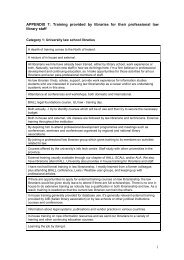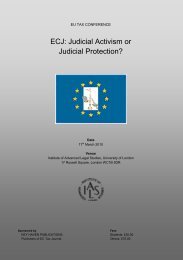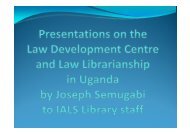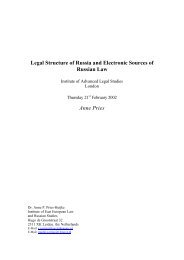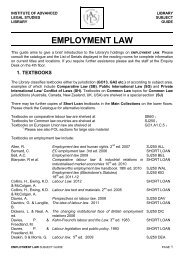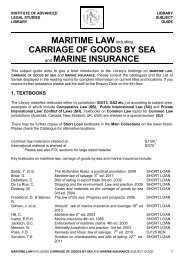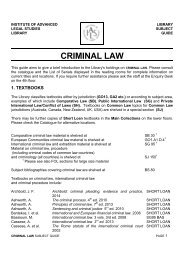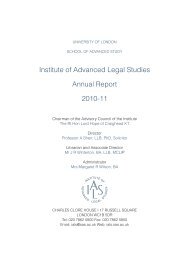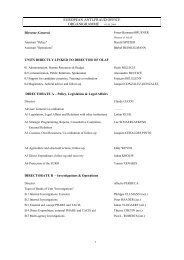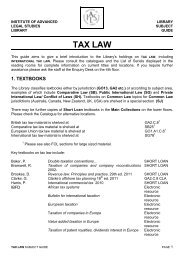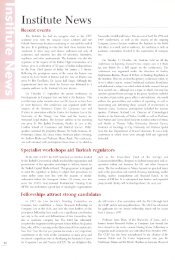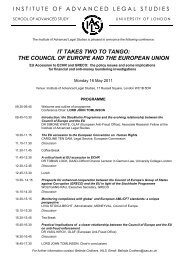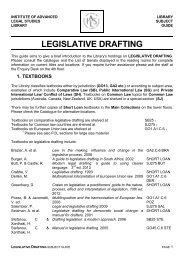a thesis - Institute of Advanced Legal Studies
a thesis - Institute of Advanced Legal Studies
a thesis - Institute of Advanced Legal Studies
Create successful ePaper yourself
Turn your PDF publications into a flip-book with our unique Google optimized e-Paper software.
4 TRUSTS IN GENERAL.<br />
ficial interest in, or a beneficial ownership <strong>of</strong>, real or personal<br />
property, unattended with the [possessory and] legal ownership<br />
there<strong>of</strong>."<br />
This definition is attributed by Snell, H. A. Smith, and Underhill,<br />
erroneously, it would seem, to Mr. Spence (at any rate, it is<br />
not to be found at 2 Sp. 875, cited by them). It appears to have<br />
been either devised by Judge Smith, or to have been adapted by<br />
him from Mr. Justice Story, and is subject to the same criticism<br />
as the definition <strong>of</strong> the latter.<br />
The Draft Civil Code <strong>of</strong> the State <strong>of</strong> New York (1865) defines a<br />
trust as follows:—§1167, "A trust is either (1) voluntary, or<br />
(2) involuntary." § 1168, " A voluntary trust is an obligation<br />
arising out <strong>of</strong> a personal confidence reposed in and voluntarily<br />
accepted by one for the benefit <strong>of</strong> another." §1169, "An involuntary<br />
trust is one which is created by operation <strong>of</strong> law."<br />
This short definition fails to mark the fact that a trust is concerned<br />
with property merely, and it seems to imply that the trustee<br />
must be somebody other than the creator <strong>of</strong> the trust, and that the<br />
trustee cannot himself be a beneficiary.<br />
Hr. Watson (1873, Compendium <strong>of</strong> Equity, 2nd ed. 959).—"A<br />
trust may be described generally as an obligation affecting property<br />
legally vested in one or more (the trustee or trustees), which obligation<br />
he is or they are bound to perform, wholly or partially for<br />
the benefit <strong>of</strong> another or others (the cestui que trust or cestnis que<br />
trust) in whom the equitable estate is vested."<br />
Mr. Watson's definition is a distinct advance on the efforts <strong>of</strong><br />
earlier text-book writers, but is subject to the objection that the<br />
trustee is not necessarily the legal owner <strong>of</strong> the trust property ; he<br />
may, for example, be trustee <strong>of</strong> a mere equity, like an equity <strong>of</strong><br />
redemption or an equitable interest arising under another trust.<br />
(See Underhill's Trusts and Trustees, 6th ed. 3.) It is also silent<br />
as to the difference between express and implied or constructive<br />
trusts.<br />
Mr. IL A. Smith (1882, Equity, 2nd ed. 23).—"A trust is<br />
rather a duty deemed in equity to rest on the conscience <strong>of</strong> a legal



